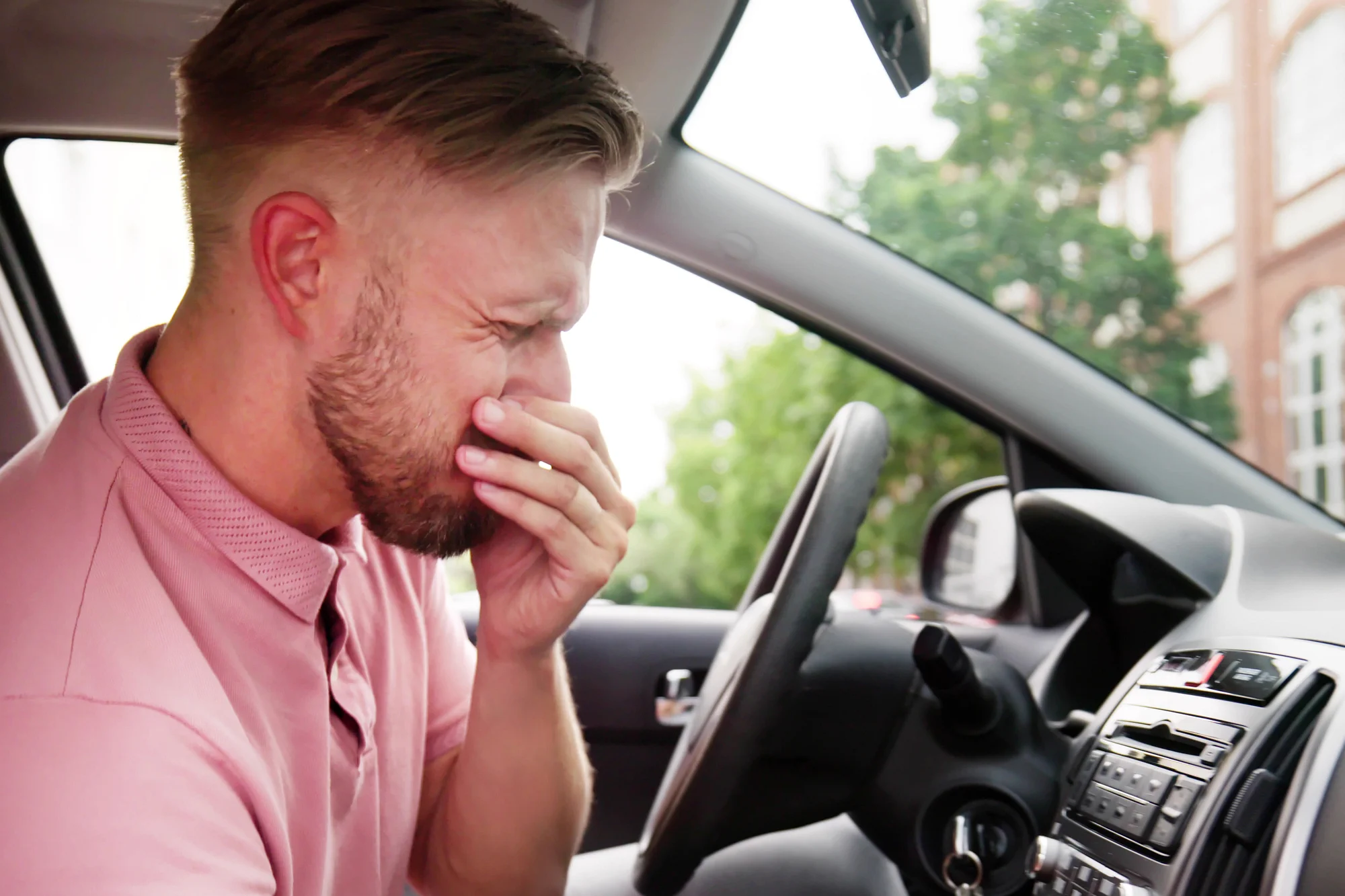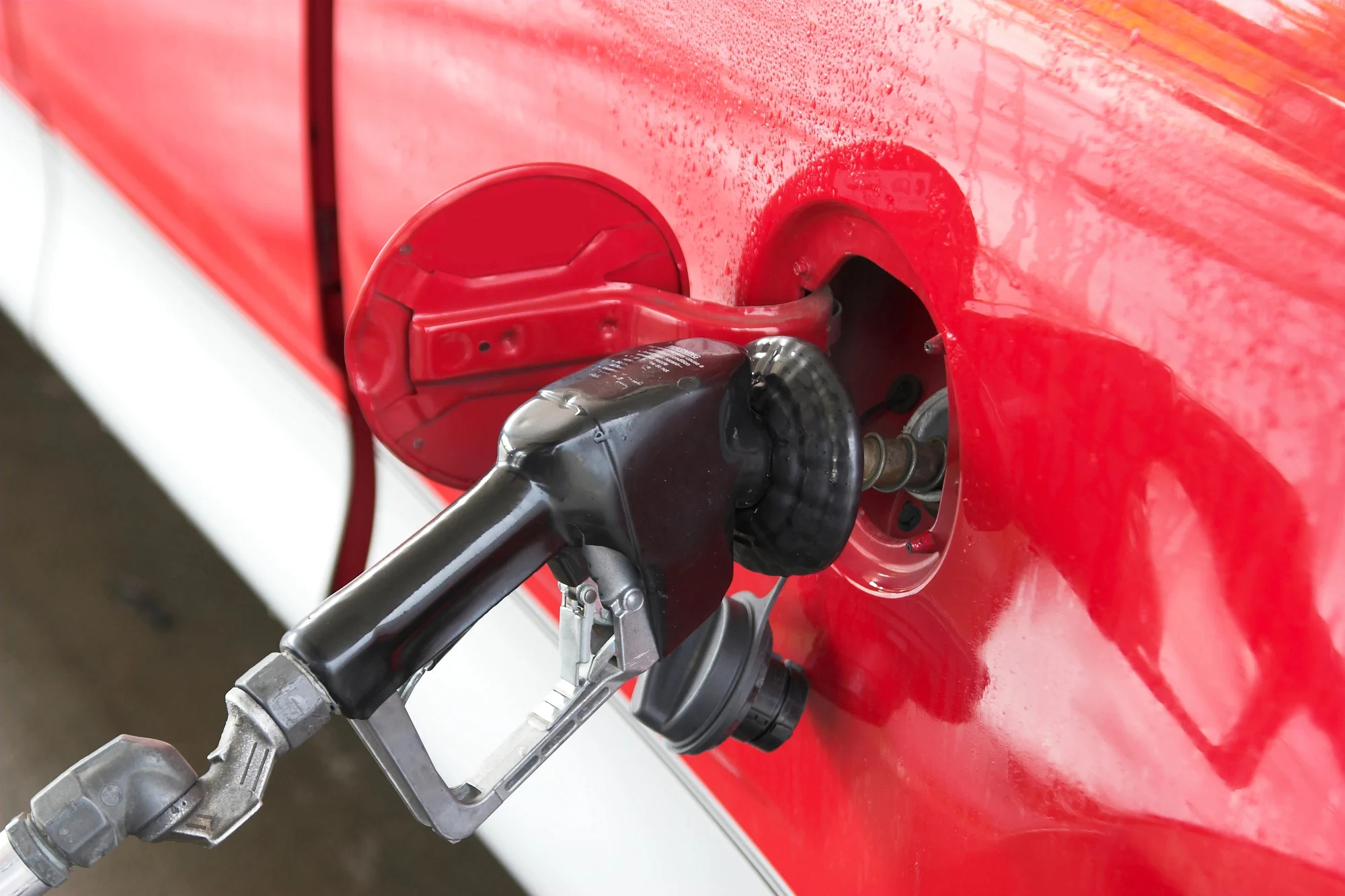Why Does Your Car Smell Like Gasoline? Discover the Reasons and Solutions
If you’ve ever asked yourself, “Why does my car smell like gasoline?” you’re not alone. The smell of gas inside your car can be alarming and is usually a sign of an underlying issue that needs immediate attention. In this comprehensive guide, we’ll delve into the common causes of car smell like gas, how to identify potential leaks, and what you can do to fix them. This article is essential reading for anyone concerned about their car’s safety and performance, and it provides practical advice to keep your vehicle running smoothly.

Outline
- Introduction: Understanding Gasoline Smells in Your Car
- What Causes a Car to Smell Like Gas?
- How to Identify a Fuel Leak
- Is Your Gas Cap the Culprit?
- Fuel System Issues: Common Problems and Fixes
- The Role of the Exhaust System in may smell gas
- Why You Shouldn’t Ignore Gas Fumes
- Steps to Take When You Smell Gasoline Inside Your Car
- Preventative Measures to Avoid Gasoline Smells
- Conclusion: Keeping Your Car Safe and Odor-Free
Introduction: Understanding Smell like gas inside of my car
Reason why your car smells like leaing fuel?
The smell of gasoline in your car can be due to various reasons, ranging from simple issues like a loose gas cap to more severe problems like a fuel leak. Understanding the source of the smell is crucial for ensuring your safety and preventing potential damage to your vehicle.
The Importance of Addressing Gasoline Smells
Ignoring the smell of fuel in your car can lead to serious consequences, including the risk of fire. Therefore, it’s important to identify and address the issue as soon as possible. This guide will help you discover the common causes of gasoline smells and provide solutions to fix them.

What Causes gas smell inside the car?
Common Reasons Behind the Smell of Gasoline
Several factors can cause your car to smell like gasoline. These include:
- Fuel Leak: A leak in the fuel system is a common cause of gas odor. This can occur in various parts of the system, including the fuel tank, fuel lines, and fuel injectors.
- Loose or Faulty Gas Cap: If your gas cap is loose, damaged, or missing, fuel vapors can escape, causing a strong odor.
- Exhaust Fumes: Problems with the exhaust system, such as an exhaust leak, can result in gasoline smells inside the car.
- Fuel Pressure Regulator Issues: A faulty fuel pressure regulator can cause fuel to leak, leading to gasoline odors.
How to Identify a Gas Leak
Identifying a fuel leak is crucial for addressing the smell of gasoline in your older car. Signs of a fuel leak include:
- Puddles of Gasoline: If you notice a puddle of fuel under your car, it indicates a fuel leak.
- Strong Odor: A strong smell of gasoline, especially near the fuel tank or engine, is a clear sign of a leak.
- Decreased Fuel Efficiency: If your car’s fuel efficiency drops suddenly, it could be due to a fuel leak.
Is Your Gas Cap the Culprit?
Faulty gas cap: The Role of the Gas Cap in Preventing Gasoline Smells
The gas cap plays a crucial role in sealing the fuel system and preventing fuel vapors from escaping. If the gas cap is loose, damaged, or missing, it can cause gasoline smells inside your car.
How to Check and Replace Your Gas Cap
To check your gas cap:
- Inspect for Damage: Look for cracks or other signs of wear on the gas cap.
- Ensure It’s Tight: Make sure the gas cap is securely tightened. If it’s loose, tighten it properly.
- Replace If Necessary: If the gas cap is damaged, replace it with a new one.
Fuel System Issues and fuel pressure regulator : Common Problems and Fixes
Fuel Leak in the Fuel Line or Fuel Tank
A leak in the fuel line or fuel tank can cause odor of gas. Here’s how to address it:
- Locate the Leak: Check the fuel line and fuel tank for visible leaks.
- Repair or Replace: Depending on the severity of the leak, you may need to repair or replace the damaged part.
Faulty Fuel Injectors
Faulty fuel injectors can also cause fuel smell inside. Signs of faulty fuel injectors include:
- Poor Engine Performance: If your engine is misfiring or not running smoothly, it could be due to faulty fuel injectors.
- Fuel Smell: A strong fuel smell near the engine indicates a problem with the injectors.
The Role of the Exhaust System in Gasoline Smells
Exhaust Fumes and Odor of Gasoline
Problems with the exhaust system, such as an exhaust leak, can cause gas smells inside the car. Exhaust fumes can enter the cabin, leading to a strong odor.
How to Identify and Fix an Exhaust Leak
To identify and fix an exhaust leak:
- Listen for Noises: A hissing or tapping noise from the exhaust system can indicate a leak.
- Inspect the Exhaust System: Look for visible damage or rust on the exhaust pipes and muffler.
- Repair or Replace: Depending on the extent of the damage, you may need to repair or replace the affected parts.
Why You Shouldn’t Ignore Gas Fumes
Risks of Ignoring Petrol Smells
Ignoring gasoline smells can have serious consequences, including:
- Health Risks: Inhaling petrol fumes can be harmful to your health.
- Fire Hazard: Gasoline is highly flammable, and a fuel leak can increase the risk of a car fire.
- Engine Damage: Ignoring fuel system issues can lead to more severe engine problems.
Steps to Take When You Smell Gasoline Inside Your Car
Immediate Actions to Address Gasoline Smells
If you smell gasoline inside your car, take the following steps:
- Check the Gas Cap: Ensure the gas cap is tight and not damaged.
- Inspect for Leaks: Look for visible signs of fuel leaks under the car.
- Ventilate the Cabin: Open the windows to ventilate the cabin and reduce the smell.
When to Seek Professional Help
If you cannot identify the source of the smell or if the problem persists, seek professional help. A mechanic can perform a thorough inspection and repair any issues with the fuel system or exhaust.
Preventative Measures to Avoid Gasoline Smells
Regular Maintenance of the Fuel System
Regular maintenance of the fuel system can help prevent gasoline smells. This includes:
- Inspecting Fuel Lines and Tank: Regularly check for leaks or damage.
- Replacing the Gas Cap: Replace the gas cap if it shows signs of wear or damage.
- Servicing Fuel Injectors: Have the fuel injectors cleaned or replaced as needed.
Monitoring the Exhaust System
Keep an eye on the exhaust system to ensure it is functioning properly. Regularly inspect for leaks and have any issues repaired promptly.
Conclusion: Understanding and Solving the Smell of Gasoline in Your Car
The smell of gasoline in your car can be alarming and potentially dangerous. Identifying the reasons why your car might smell like gas and addressing them promptly is crucial for your safety and vehicle’s performance.
Common Causes of Gasoline Smell
There are various reasons why your car may smell like gasoline. A
gas leak is one of the most common causes, and it can originate from several sources within your vehicle’s fuel system. Whether it’s a
leaking fuel injector, a
faulty gas cap, or an issue with the
fuel pressure regulator, identifying the source of the
smell of gasoline is the first step towards a solution.
Key Reasons You Might Smell Gasoline
- Gas Leak: A gas leak can occur in the gas tank, fuel lines, or fuel injectors. If you notice a gasoline smell and puddle under your car, it’s likely due to a leaking fuel system.
- Faulty Gas Cap: A loose or missing gas cap can cause gasoline vapors to escape, leading to a strong odor. Ensure the vehicle’s gas cap is secure and in good condition.
- Fuel Pressure Regulator: Issues with the fuel pressure regulator may cause excess fuel to enter the engine, resulting in a strong gas smell.
- Exhaust Fumes: Exhaust system problems, like a leak, can also cause your car to smell like gasoline inside the cabin.
Steps to Take When You Smell Gasoline
- Inspect for Leaks: Check for any visible signs of a gas leak. This includes looking for a puddle under your car or gasoline stains on the driveway.
- Check the Gas Cap: Ensure your gas cap is tightly secured and not damaged.
- Examine the Fuel System: Look for any leaks or issues with the fuel lines, fuel injectors, and pressure regulator.
- Seek Professional Help: If you can’t identify the source of the gasoline smell, take your car to a mechanic. A professional inspection can help discover why your car smells like gasoline and ensure it’s fixed properly.
Why Addressing Gasoline Smells is Crucial
Ignoring the
smell of gasoline in your car can lead to severe consequences. Gasoline fumes are highly flammable and pose a significant fire risk. Additionally, inhaling
gasoline vapor can be harmful to your health.
If the
smell inside your car persists, it’s essential to act quickly. Take your
car to the shop to prevent potential hazards and ensure your vehicle operates safely.
Dealing with a gas leak promptly can save you from costly repairs and safeguard your well-being.
Final Thoughts
Understanding the
causes of a gas smell in your car and knowing how to address them is crucial for maintaining a safe and reliable vehicle. Whether it’s a simple fix like tightening a
loose gas cap or a more complex issue like repairing a
fuel leak, taking the necessary steps to resolve the
gasoline smell will keep your car running smoothly and safely.
For more detailed information and professional advice, visit
Prairie Land Garages or contact us directly to ensure your vehicle is in top condition. Don’t ignore the warning signs; take action today to maintain your car’s health and safety.
For more detailed information and professional advice, visit
Prairie Land Garages Inc. or
contact us directly at
(773) 679-7833


